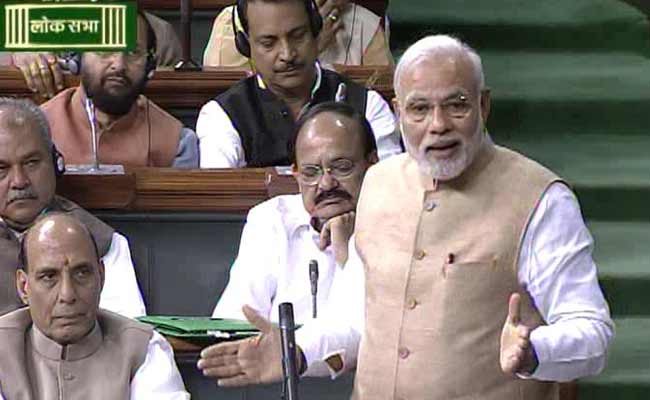According to a The Print report, since the Bharatiya Janata Party (BJP) led National Democratic Alliance (NDA) arrived at power in 2014, the productivity of Lower House of the Parliament, where the NDA is in majority, has increased. On the other hand, the Upper House has witnessed far more disruptions than the Lok Sabha mainly because of the fact that the opposition has an upper hand in the Rajya Sabha.
The Print has quoted PRS Legislative Research’s data (till 4 January) suggesting that the productivity of the Lok Sabha in the last five years has been 84 percent, as against a much lower 65 percent figure for the Rajya Sabha.
In 15th Lok Sabha when the second United Progressive Alliance (UPA) government was in power, the productivity of the house stood at 63 percent and it can be called the least productive in almost five decades. However, the productivity of Rajya Sabha has done down from 68 percent to 65 percent. Given the fact that BJP lacks a majority in the Rajya Sabha, the productivity of the Upper house has not been able to match to that of the Lok Sabha. Many important Bills have faced hurdles in the house with the opposition having an edge. Since opposition finds no space in Lok Sabha, the Rajya Sabha automatically becomes a place where they can have a say and this, unfortunately, results in sheer noise and disruption.
According to productivity figures, of its total hours, the Lok Sabha suffered a loss of only 16 percent of its time, but the Rajya Sabha ended up losing over one-third i.e. 35 percent of its time.
The most productive session of the Lok Sabha has been 2015 Budget session which registered 122 percent productivity.
The 2016 Lok Sabha Winter session was the least productive with productivity touching the 15 percent mark. The main reason behind the low productivity was demonetization. The opposition was demanding an unconditional debate on the demonetization and that’s why hardly any productive proceeding could take place in the house.
In the Upper House, the most productive session was the 2014 Budget session. The productivity of the house was 109 percent.
The least productive session of Rajya Sabha was the 2015 monsoon session during which the House registered productivity of only 9 percent.
In the last five years of the NDA government, the Parliament passed a total of 131 government bills and 44 finance and appropriation bills (As of January 7). When the UPA government was in power, the figure stood at 16 and 63, respectively.
In the last five years, the overall productivity of the parliament increased but in the last session of 16th Lok Sabha, the productivity of the parliament could maintain the momentum. In this session, productivity in the Lok Sabha declined to 36%, while it remained just 18% in the Rajya Sabha.
The main reason behind such the low productivity of the house is the disruption caused by other parties. The incumbent government has been targetted by various parties on a variety of issues. The Congress party continued its Rafale rant and demanded JPC probe, the AIADMK, and the DMK contributed in the disruption of the sessions over the issue of a dam across the Cauvery River, and the TDP also created a ruckus in the parliament as it continued with its demand of special status for Andhra Pradesh.
